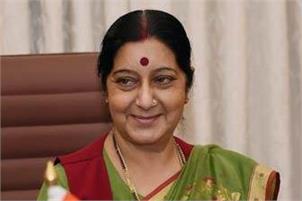 Your Excellency, Mr. Kamal Thapa, Chairperson of the Council of Ministers
Your Excellency, Mr. Kamal Thapa, Chairperson of the Council of Ministers
Your Excellencies, Foreign Ministers of SAARC Member States
Foreign Secretaries
Distinguished delegates
- I convey my sincere appreciation to Government of Nepal for its able steering of the SAARC process since the Kathmandu Summit in November 2014. The terrible natural disaster that shook this beautiful country last year may have shaken earth, but could not shake the resolve of the people to re-build their lives. I pay tribute to their grit and determination. I also thank the Government of Nepal for its generous hospitality and for holding this meeting in the shadow of the legendary Machhapuchhare in Pokhara.
- I have had the opportunity to visit Nepal and India’s other neighbours in South Asia on several occasions, and I greatly value the warmth and friendship that has developed between us. Excellencies,
- SAARC embodies the aspirations of our peoples. We are united by history and geography, customs and traditions, religions and creeds, that have given us our syncretic cultural heritage. Our oral traditions have spread philosophies and knowledge to all parts of the region and the world. After many hesitant steps, we have reached the stage where we are poised for take-off as a region marked by vitality, creativity and economic growth.
- The South Asian region is hailed today as having the potential to be the frontrunner of growth and prosperity. It is one of the fastest growing regions of the world. We have taken some important decisions to integrate our economies through SAFTA and South Asian Trade in Services Agreement. These need to be developed and consolidated further if we are to achieve a South Asian Economic Union. The statistics are telling: our region accounts for merely 2% of world trade and 1.7% of world FDI. Our intra-regional trade is less than 6% of our global trade and intra-regional FDI accounts for only 3% of total FDI inflows.
- Despite strong growth and huge advances in education, healthcare and rural development, our region still has the world’s largest number of people living below the poverty line. We continue to face significant challenges in delivering food security, health, nutrition and education to our peoples. All this goes to show that while we are doing well individually, we have not been able to unleash our collective strength effectively. We must think innovatively and find solutions so that we may harness our economic complementarities and ensure a conducive environment for rapid growth.
- Connectivity is central to our development and will determine how we meet our goals of growth, employment, and prosperity. As we seek to overcome basic problems of physical connectivity, it is important for us to move forward quickly on pending agreements on rail and motor vehicles. Economic activities, cultural connections and people to people contacts will flow naturally from such connectivity. Excellencies,
- We meet today several months after the last SAARC Summit in Kathmandu and a few months before the next Summit in Islamabad. This is a good occasion for stocktaking of progress made on various initiatives proposed by India to pursue our vision for SAARC integration. My Government has shown its commitment to a “Neighbourhood First” policy from its very first day in office. Our vision of “Sabka saath, Sabka vikas” is for the whole SAARC region. Together, we can create a viable ecosystem of regional integration, cooperation and socio-economic development. Together, we can unlock the latent talent of South Asia.
- As we have demonstrated in the past, India is prepared to work within the SAARC community to realize our developmental goals. Indian Universities remain open for SAARC citizens. We are committed to supporting campus and infrastructure development of the South Asian University that has been established exclusively for the students of the region. We have moved forward on unilateral initiatives that we announced at the last Summit for sharing Indian scientific and technological progress with the SAARC community.
- These include among others a dedicated Satellite for SAARC to support applications in health, education, disaster response, weather forecasting and communications for our people; establishment of a supra-national laboratory to combat diseases like TB and AIDS; creation of a SAARC wide Knowledge Network to interlink our students, academic and research communities; and organisation of the first SAARC Annual Disaster Management Exercise. Looking ahead, I am confident of your support for a SAARC Environment and Disaster Management Centre in India. Such a Centre can benefit from domain expertise of a large network of specialized Indian institutions experienced in quick response to various natural disasters.
- To us, SAARC is about positive synergy that will allow each of its members to achieve their full potential. We must recognise that we have common enemies in poverty, illiteracy, terrorism and environmental degradation. We will need to fight these challenges together since we have a shared history, and a shared destiny. Let us reach for it together.

